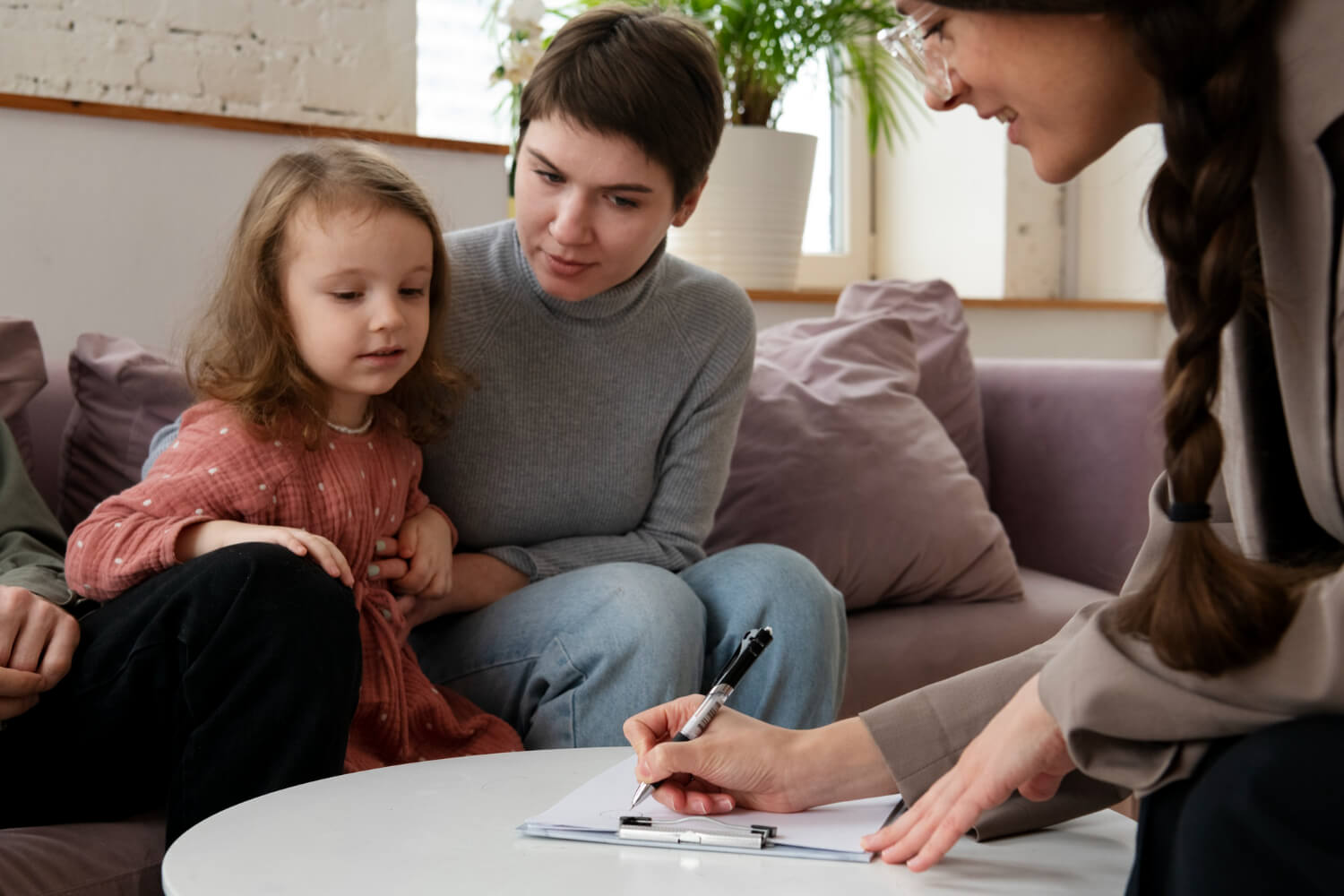At Orange County Family Therapist Group, we understand the unique emotional and behavioral challenges children face, especially during difficult life transitions. Our expert child behavioral therapists are dedicated to helping children develop the emotional tools they need to thrive in their environment, ensuring they feel supported, understood, and heard.

At Orange County Family Therapist Group, our goal is to help families navigate challenging transitions and provide children with the emotional support they need. Whether your child is struggling with behavioral issues, anxiety, or emotional disturbances, our child behavioral therapist services are tailored to address your child’s specific needs. We work collaboratively with families to create a safe, structured environment where children can learn healthy ways to express themselves and cope with their emotions.
Additionally, we offer a variety of family-centered therapeutic services, including Orange County eating disorder family therapy for families struggling with the emotional impact of eating disorders, and parenting classes near me to equip parents with strategies for maintaining a stable, supportive home environment.
Child behavioral therapy can take many forms, depending on the child’s individual needs and family dynamics. At Orange County Family Therapist Group, we offer multiple approaches to behavioral therapy, each designed to help children address their emotions and behaviors in a healthy and constructive manner.
CBT helps children understand the connection between their thoughts, feelings, and behaviors. This type of therapy is particularly useful for children experiencing anxiety, depression, or difficulty managing their emotions. By recognizing negative thought patterns, children can learn how to change their behavior and develop healthier coping mechanisms.
Play therapy is designed for younger children who may have difficulty expressing their feelings verbally. Through play, children can express their emotions in a safe and supportive environment. This therapy can help children dealing with trauma, behavioral issues, or family disruptions, such as divorce.
Family therapy involves the entire family in the therapeutic process. It is especially helpful when a child’s behavioral issues are linked to family dynamics. Family therapy focuses on improving communication, resolving conflicts, and ensuring that each family member’s emotional needs are met.
PCIT is a specialized therapy designed to improve the relationship between parents and children by teaching parents effective ways to manage their child’s behavior. This therapy focuses on building positive interactions and teaching parents how to respond to challenging behaviors in a constructive and supportive way.
Children who have experienced trauma, such as the death of a loved one, abuse, or parental divorce, often benefit from trauma-focused cognitive behavioral therapy. This therapy helps children process their trauma and develop healthy coping mechanisms for dealing with their emotional responses.
Group therapy is an effective approach for children struggling with social interactions, anxiety, or peer-related issues. Through group sessions, children can learn important social skills, such as effective communication, empathy, and conflict resolution, in a supportive and structured environment.
At Orange County Family Therapist Group, we use a structured, six-step process to address and manage your child’s behavioral challenges. Below are the key steps involved in our child behavioral therapy process:
We begin with a comprehensive assessment of your child’s behavior, emotional needs, and family dynamics. This allows us to understand any underlying issues, such as anxiety, behavioral disorders, or family conflict, which may be contributing to your child’s emotional or behavioral challenges.
In this step, we work with the child and family to identify goals for therapy. Whether it’s improving social skills, managing anger, or addressing behavioral issues at school, we ensure that the therapy is tailored to meet the child’s specific needs.
Our child behavioral therapist conducts regular, structured therapy sessions where the child can express their feelings, learn coping strategies, and develop better behavioral habits. These sessions may involve activities like play therapy, role-playing, or discussions based on the child’s age and comfort level.
After the initial therapy sessions, we continue to provide follow-up sessions to track your child’s progress and offer long-term support as needed. This ensures that any ongoing challenges are addressed and that your child continues to grow emotionally and behaviorally.
When needed, family therapy is integrated into the process to address any family dynamics that may be contributing to the child’s behavioral issues. This ensures that the entire family is working together to support the child’s emotional growth.
Parental involvement is key to the success of child behavioral therapy. We offer support to parents through parenting classes near me, where they can learn effective strategies for managing their child’s behavior and fostering positive interactions at home.
Child behavioral therapy helps children develop the emotional tools they need to navigate difficult situations, manage their feelings, and interact positively with others. It is particularly beneficial for children dealing with behavioral issues, anxiety, or significant life changes like divorce.
Yes, child behavioral therapy often includes family therapy elements that help parents and children understand each other better, resolve conflicts, and create a more harmonious home environment.
Parents play a critical role in the success of child behavioral therapy. By participating in therapy sessions or parenting classes near me, parents can learn effective strategies for managing their child’s behavior and fostering positive relationships within the family.
Children can struggle emotionally during and after a divorce. A child behavioral therapist can provide them with the tools to express their feelings and adjust to the changes. This type of therapy is critical in helping children process their emotions and maintain emotional well-being during family transitions.
Orange County Family Therapist Group can be reached during normal business hours by phone or email. If you have a medical emergency, please dial 911.